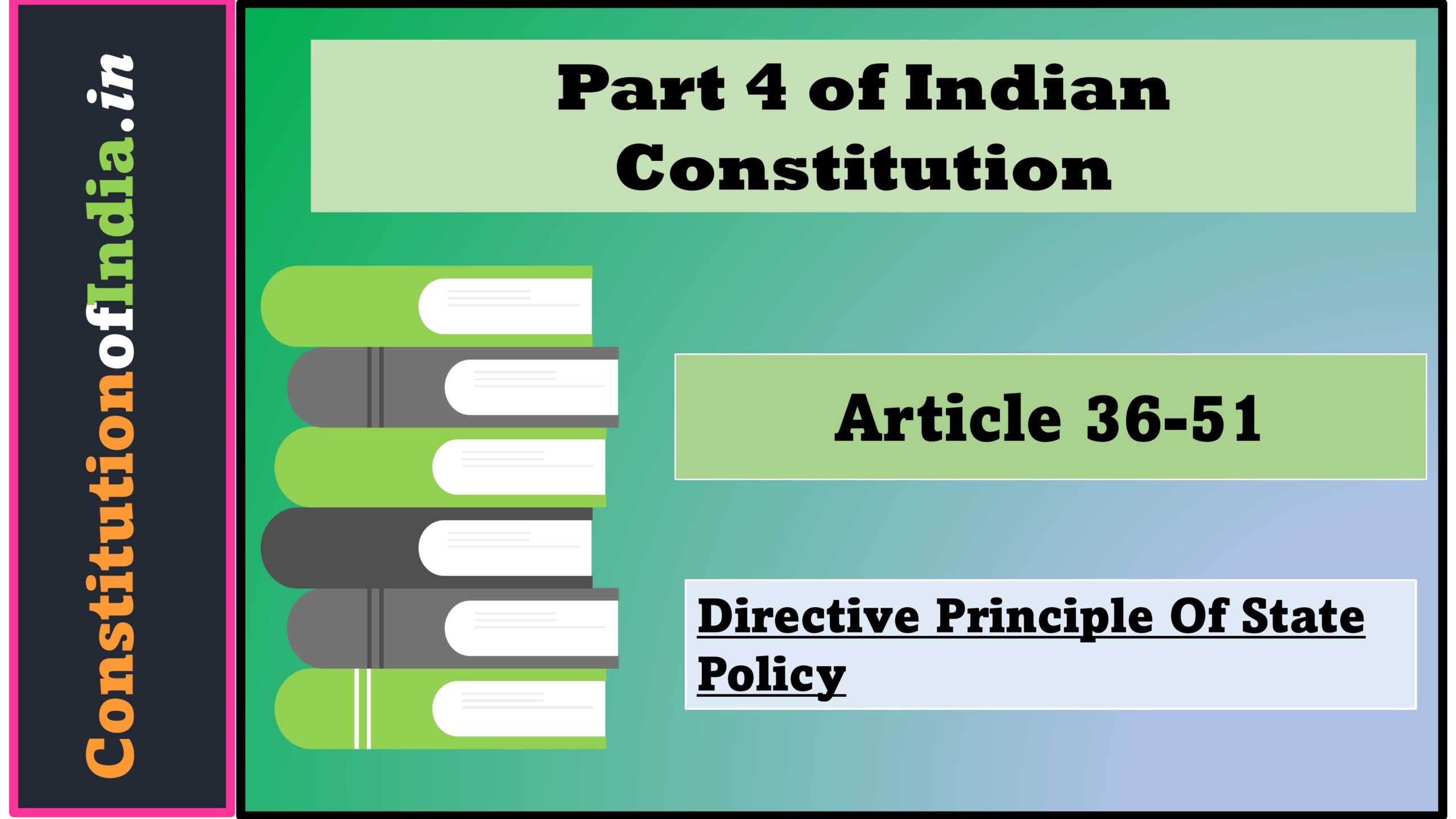
Article 36 of Indian Constitution
Article 36 of Indian Constitution: Definition Article 36 Definition – Constitution Of India In this Part, unless the context otherwise …
Article 37 of Indian Constitution
Article 37 of Indian Constitution: Application of the principles contained in this Part Article 37 Application of the principles contained …
Article 38 of Indian Constitution
Article 38 of Indian Constitution: State to secure a social order for the promotion of welfare of the people Article …
Article 39, 39A of Indian Constitution
Article 39 of Indian Constitution: Certain principles of policy to be followed by the State Article 39 Certain principles of …
Article 40 of Indian Constitution
Article 40 of the Indian Constitution directs the state to establish and empower village panchayats as self-governing units. It emphasizes granting them the necessary powers and authority to effectively function and make decisions for the development and governance of their respective villages.
Article 41 of Indian Constitution
Article 41 of the Indian Constitution focuses on the right to public assistance and welfare. It mandates the state to provide support and care for individuals who are unable to secure a livelihood due to age, disability, or other factors. It aims to ensure a dignified life and social security for all citizens.
Article 42 of Indian Constitution
Article 42 of the Indian Constitution emphasizes the state’s responsibility to provide social security and welfare measures for workers, including maternity benefits, healthcare, and a safe working environment. It aims to ensure the well-being and protection of workers, particularly in terms of health and social support.
Article 43, 43A of Indian Constitution
Article 43 of the Indian Constitution urges the state to ensure that all workers, including those in agriculture and industry, receive fair wages and decent working conditions. It emphasizes the importance of a dignified life, leisure, and access to social and cultural opportunities. Additionally, it encourages the promotion of cottage industries in rural areas.
Article 44 of Indian Constitution – Uniform civil code for the citizens
Article 44 of the Indian Constitution promotes the idea of a uniform civil code for all citizens, irrespective of their religion. It urges the state to work towards harmonizing personal laws related to marriage, divorce, inheritance, and other civil matters, with the goal of fostering national integration and gender equality.
Article 45 of Indian Constitution
Article 45 of the Indian Constitution emphasizes the state’s responsibility to provide free and compulsory education to children between the ages of 6 and 14. It aims to ensure that all children receive proper education and opportunities for their intellectual, social, and cultural development, promoting a literate society.
Article 46 of Indian Constitution
Article 46 of the Indian Constitution highlights the duty of the state to protect and promote the educational and economic interests of the weaker sections of society, particularly scheduled castes and scheduled tribes. It aims to bridge the social and economic gaps and ensure equal opportunities for their development and advancement.
Article 47 of Indian Constitution
Article 47 of the Indian Constitution focuses on the improvement of public health and living conditions. It directs the state to strive for the prohibition of alcohol, drugs, and other substances that are injurious to health. The state should also promote healthcare and ensure the well-being of citizens.
Article 48 of Indian Constitution
Article 48 of the Indian Constitution emphasizes the protection and improvement of cow and cattle breeds. The state shall take measures to prevent their slaughter and promote their preservation for agricultural and economic purposes, while also considering the welfare of the animals.
Article 49 of Indian Constitution
The State is responsible for safeguarding monuments, places, and objects of artistic or historical significance declared as national treasures. It must prevent any harm, damage, or removal of these assets, as mandated by laws enacted by Parliament.
Article 50 of Indian Constitution
Article 50 of the Indian Constitution directs the state to separate the judiciary from the executive. It aims to maintain an independent and impartial judicial system, ensuring a fair and just society. This provision supports the principle of the separation of powers in India’s governance.
Article 51 of Indian Constitution
Article 51 of the Indian Constitution outlines the country’s commitment to promoting international peace and security. It emphasizes the principles of non-violence, peaceful coexistence, and respect for international law. India strives to foster peaceful relations with other nations and support global peace efforts.